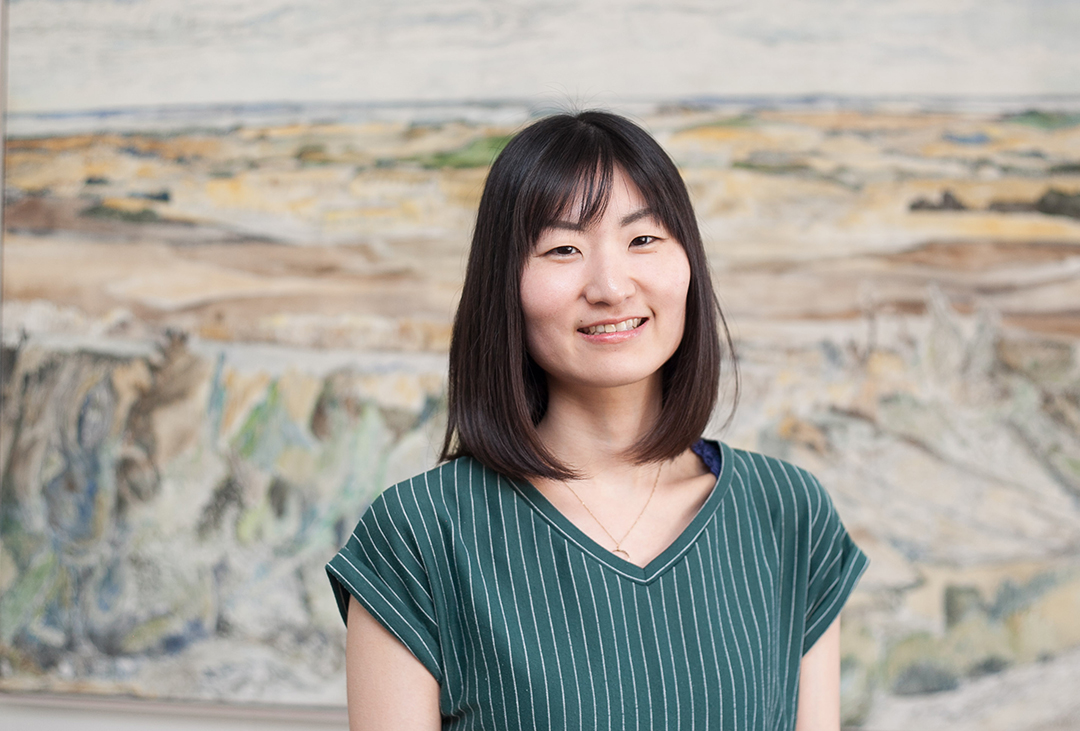
Top award for Takada
Dr. Kanae Takada, a small animal internal medicine resident and graduate student at the Western College of Veterinary Medicine (WCVM), is the first recipient of the Dr. Michael Powell Award of Excellence.
By Katie Brickman-Young“I feel honoured. I was surprised [I won] because many other graduate students are doing interesting studies at the WCVM,” says Takada.
In 2019, the WCVM’s Companion Animal Health Fund (CAHF) received a significant legacy gift from the estate of Dr. Michael Powell. In honour of his generosity, the fund named a new graduate award after the beloved Saskatoon veterinarian.
The new award recognizes a WCVM graduate student working in a companion animal-related field who excels in academic and research activities. As the 2020 award recipient, Takada receives more than $7,700 — the cost of her annual tuition plus an extra $1,000.
Dr. Tony Carr, Takada’s supervisor, describes her as one of the best residents he’s worked with in his two decades at the WCVM.
“She is incredibly hard working and intelligent and is one of the hardest workers I have supervised,” wrote Carr in his recommendation letter. “Her knowledge is excellent and her clinical skills are superior and improving day to day.”
Takada came to the WCVM in 2017 for a one-year clinical internship. She stayed on to begin a combined Master of Science-residency program and is studying the long-term impact of parvovirus in dogs that survive the infection.
Parvovirus is highly contagious and is spread from dog to dog by direct or indirect contact with their feces. Vaccines can prevent this infection, but mortality can reach over 90 per cent in untreated cases. Symptoms of parvovirus include gastroenteritis causing vomiting, diarrhea and lethargy.
“Previous summer students found that even after recovery from this disease, dogs can still have persistent or ongoing GI signs like vomiting or diarrhea,” explains Takada. “So I am looking at those dogs that are still having those ongoing issues. My study is looking at the future effects of parvovirus after recovering from the disease and why they have a higher chance of having digestive issues later on.”
Takada will look at clinicopathological data of recovered dogs to identify characteristics of these parvovirus survivors. While this project continues the work of a previous WCVM study, it also overlaps with Takada’s interest in digestive systems in small animals.
“I did a study when I was in vet school that was gastroenterology related, so I had some background and interest in this topic,” says Takada, who hopes to publish her research findings. Receiving the Powell award will help her reach that goal.
“There are a couple of ways that this [award] will assist my career and this study. For example, for this study, I will need some help with publication fees to get this data published,” Takada says. “Also, it provides the possibility to attend any international conferences to help push us forward to get more insight.”
Takada received her Doctor of Veterinary Medicine (DVM) from Hokkaido University in Japan in 2012, and eventually, she hopes her specialized training can help her to make a difference in Japan.
“In my home country, we don’t have as good of a residency program or clinics for learning and research like in North America.”
Carr is confident that Takada has a bright future ahead of her: “I expect she will make significant contributions to veterinary medicine, will be an excellent and compassionate veterinarian, and potentially be a major force shaping the development of specialty certification in Japan.”
Click here to read more stories in the Summer 2020 issue of Vet Topics, publication for the Companion Animal Health Fund.
